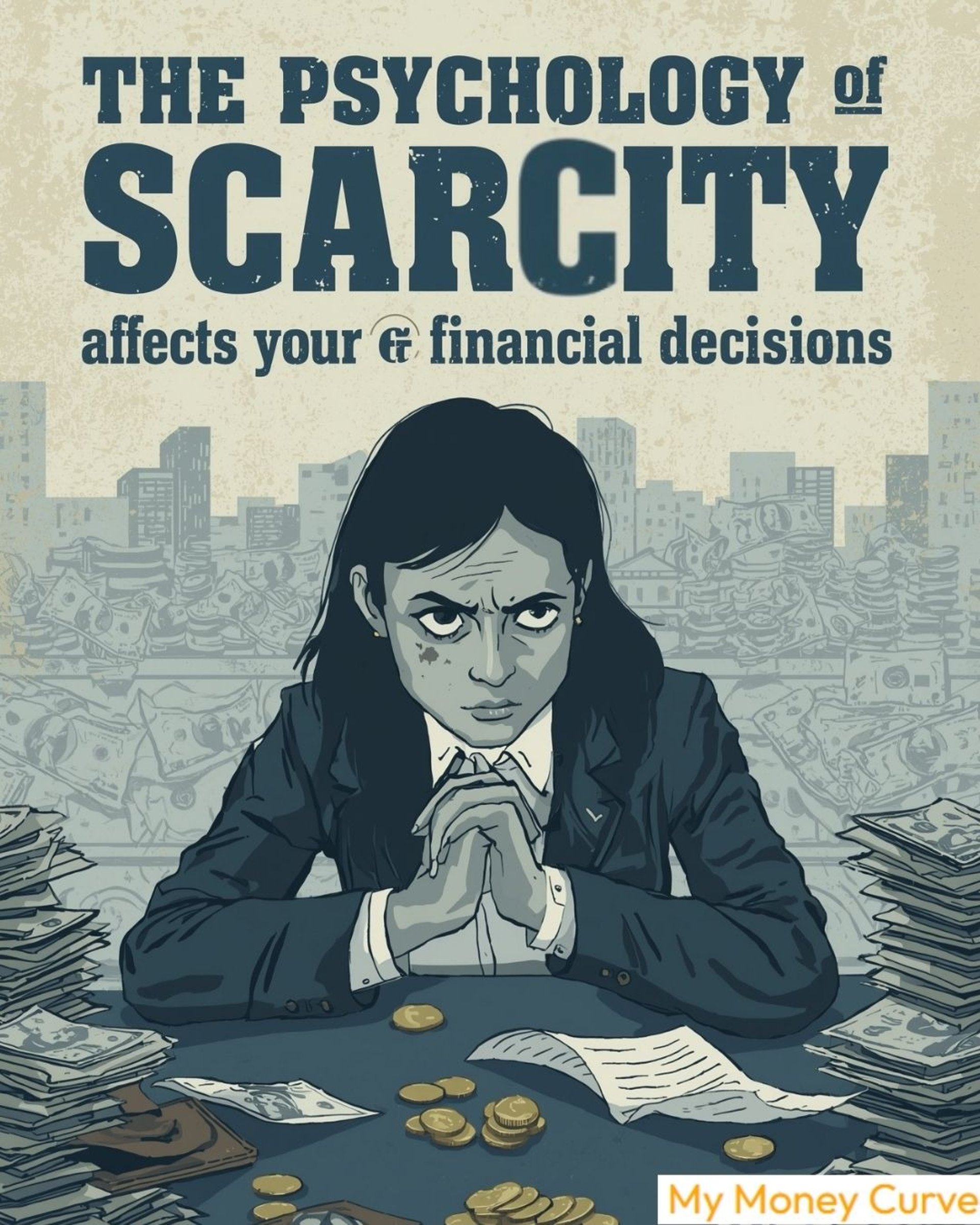
The Psychology of Scarcity: How Feeling 'Broke' Affects Your Financial Decisions
Many people assume that financial challenges are purely about income, but research shows that mindset plays an equally powerful role. The psychology of scarcity refers to the mental and emotional patterns that emerge when people feel they don’t have enough resources. This perception affects decision-making, even for those who have a sufficient income. Understanding how scarcity shapes behavior is essential for making smarter financial choices and building long-term stability.
8/23/20252 min read
What is the Psychology of Scarcity?
Scarcity is more than just lacking money; it’s a mindset. It creates a narrow focus on immediate needs, often at the expense of long-term goals. When you operate under a scarcity mindset, every financial decision is filtered through the lens of urgency and lack, which can distort priorities and lead to impulsive actions.
This mindset is often amplified by social comparisons, debt, unexpected expenses, or cultural pressures to maintain appearances. Even small perceived shortages can trigger the cognitive and emotional effects of scarcity.
How Scarcity Shapes Behavior
1. Avoiding Investments and Long-Term Planning
When money feels tight, people prioritize immediate survival over future growth. Retirement savings, emergency funds, or educational investments are often postponed or ignored.
2. Impulse Spending and Poor Budgeting
Paradoxically, scarcity can lead to overspending. Emotional stress and the fear of missing out can push people to make irrational purchases, temporarily relieving tension but worsening financial strain in the long run.
3. Procrastination and Decision Fatigue
Operating in scarcity requires constant decision-making, from managing limited funds to prioritizing essential expenses. This cognitive load can lead to procrastination or suboptimal choices.
4. Focus on Short-Term Gains
Scarcity encourages short-term thinking. People may take high-interest loans or accept low-quality deals to satisfy immediate needs, undermining financial stability.
Emotional and Cognitive Consequences
1. Stress and Anxiety
Feeling financially inadequate triggers stress hormones, which can impair judgment and reinforce negative spending habits.
2. Reduced Cognitive Bandwidth
Scarcity consumes mental resources, making it harder to plan, solve problems, or process complex information, even in areas unrelated to finance.
3. Social Impacts
Individuals may avoid social situations to save money or feel ashamed of their financial status, leading to isolation and reduced support networks.
Signs You Are Operating Under Scarcity Mindset
Constant worry about money, regardless of actual income.
Avoidance of long-term financial planning or investment.
Impulsive purchases triggered by fear or anxiety.
Feeling trapped in a cycle of earning and spending.
Difficulty saying no to social pressures or obligations.
Recognizing these signs is the first step toward breaking free from scarcity-driven habits.
Strategies to Overcome Scarcity Mindset
1. Shift to an Abundance Mindset
Focus on opportunities, growth, and the resources you do have. Gratitude and reframing challenges can help reduce the mental burden of scarcity.
2. Create a Clear Financial Plan
Budgeting, setting savings goals, and automating investments can reduce the stress of decision-making and provide a sense of control.
3. Educate Yourself Financially
Understanding personal finance, investing, and money management empowers you to make informed choices, counteracting fear-based decisions.
4. Practice Mindfulness and Emotional Awareness
Recognize when scarcity thinking drives impulsive choices. Pausing before spending or making decisions creates space for rational thought.
5. Build a Supportive Network
Discuss financial goals with trusted friends, mentors, or financial advisors. External support provides perspective and accountability.
6. Gradual Behavioral Changes
Start with small actions like saving a fixed amount monthly or tracking spending patterns. Incremental improvements reinforce confidence and financial security.
Case Studies
Case 1: Emily constantly worried about money despite a steady income. She began automating savings, creating a clear budget, and practicing gratitude for resources she had. Over time, she shifted to long-term planning and reduced financial anxiety.
Case 2: Marcus frequently made impulsive purchases due to scarcity thinking. By tracking spending triggers and implementing a waiting period for non-essential buys, he regained control and built a small investment portfolio.
Conclusion
The psychology of scarcity shows that feeling 'broke' is not always a reflection of actual finances—it’s often a mindset that affects behavior, decision-making, and emotional well-being. By recognizing scarcity-driven patterns, adopting an abundance mindset, and implementing structured financial habits, you can break free from cycles of stress and impulsive spending.
Mastering your financial mindset is just as important as mastering numbers. Awareness, planning, and intentional habits allow you to make better financial decisions, reduce anxiety, and achieve long-term stability. Transforming scarcity thinking into abundance thinking is a crucial step toward financial empowerment and a more secure future.
Finance
Empowering your financial journey with clarity and confidence.
Growth
Curve
contact@mymoneycurve.com
© 2025. All rights reserved.